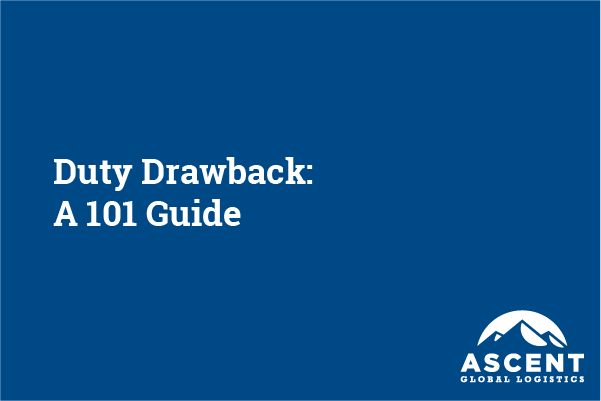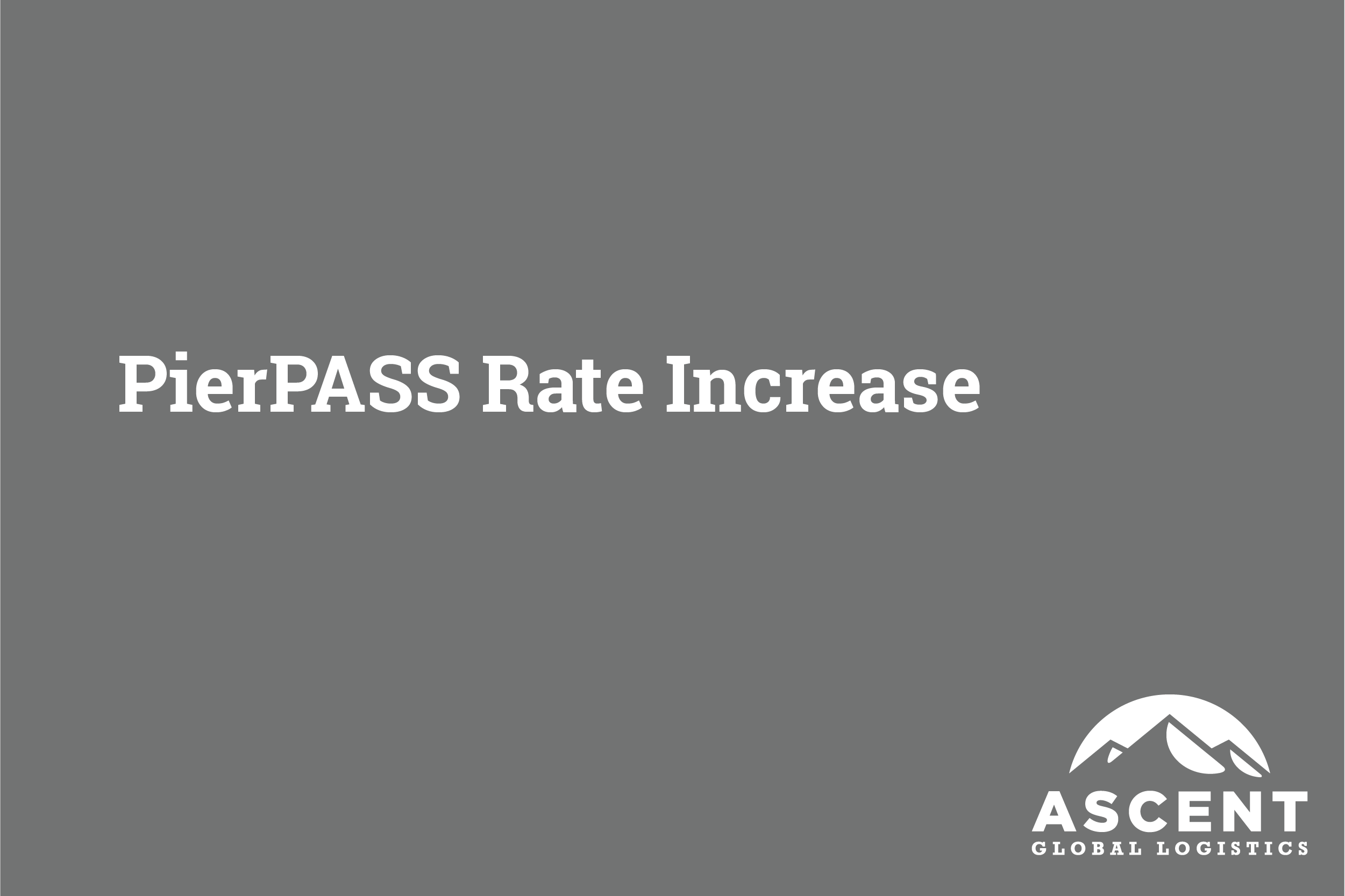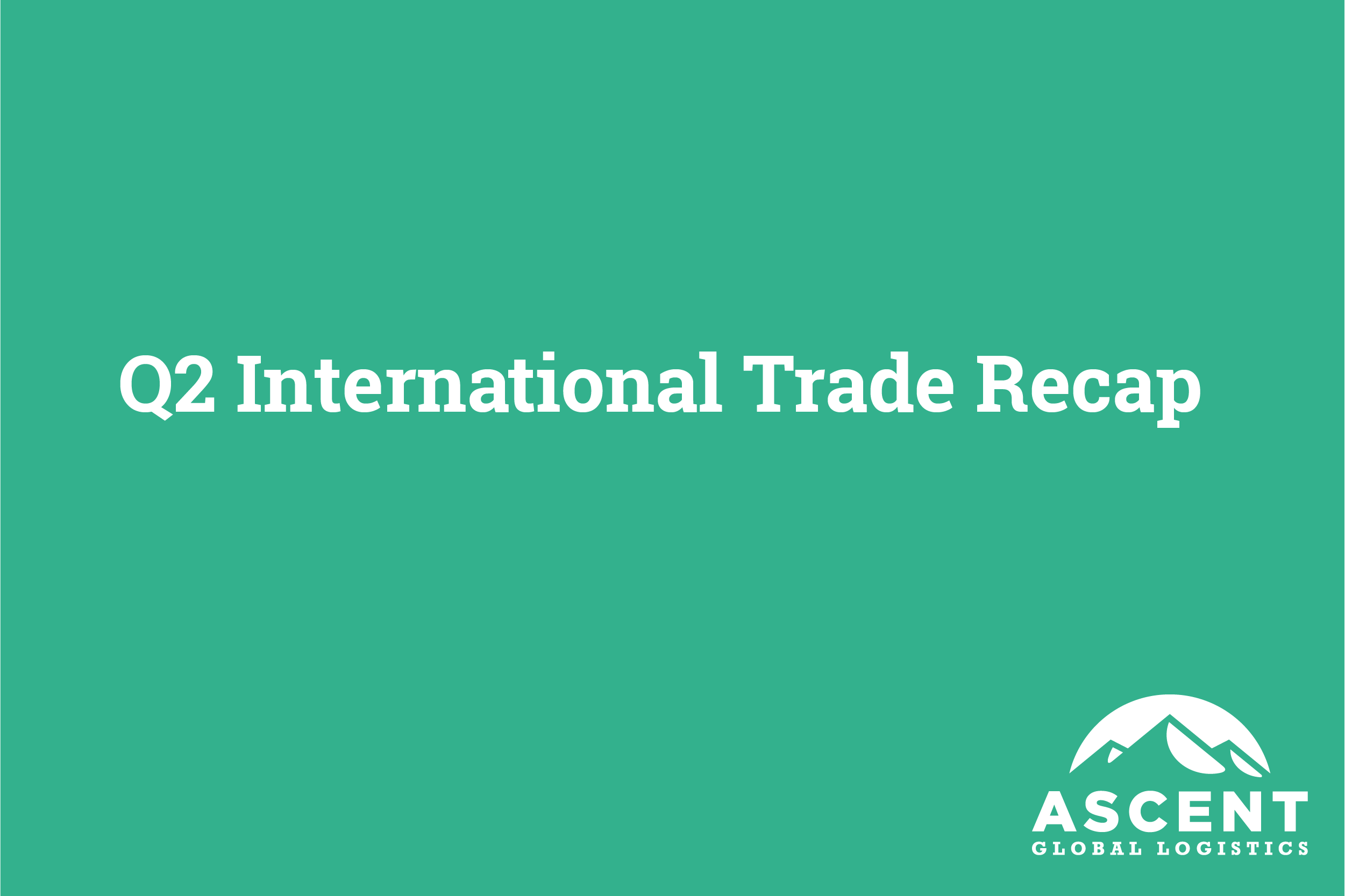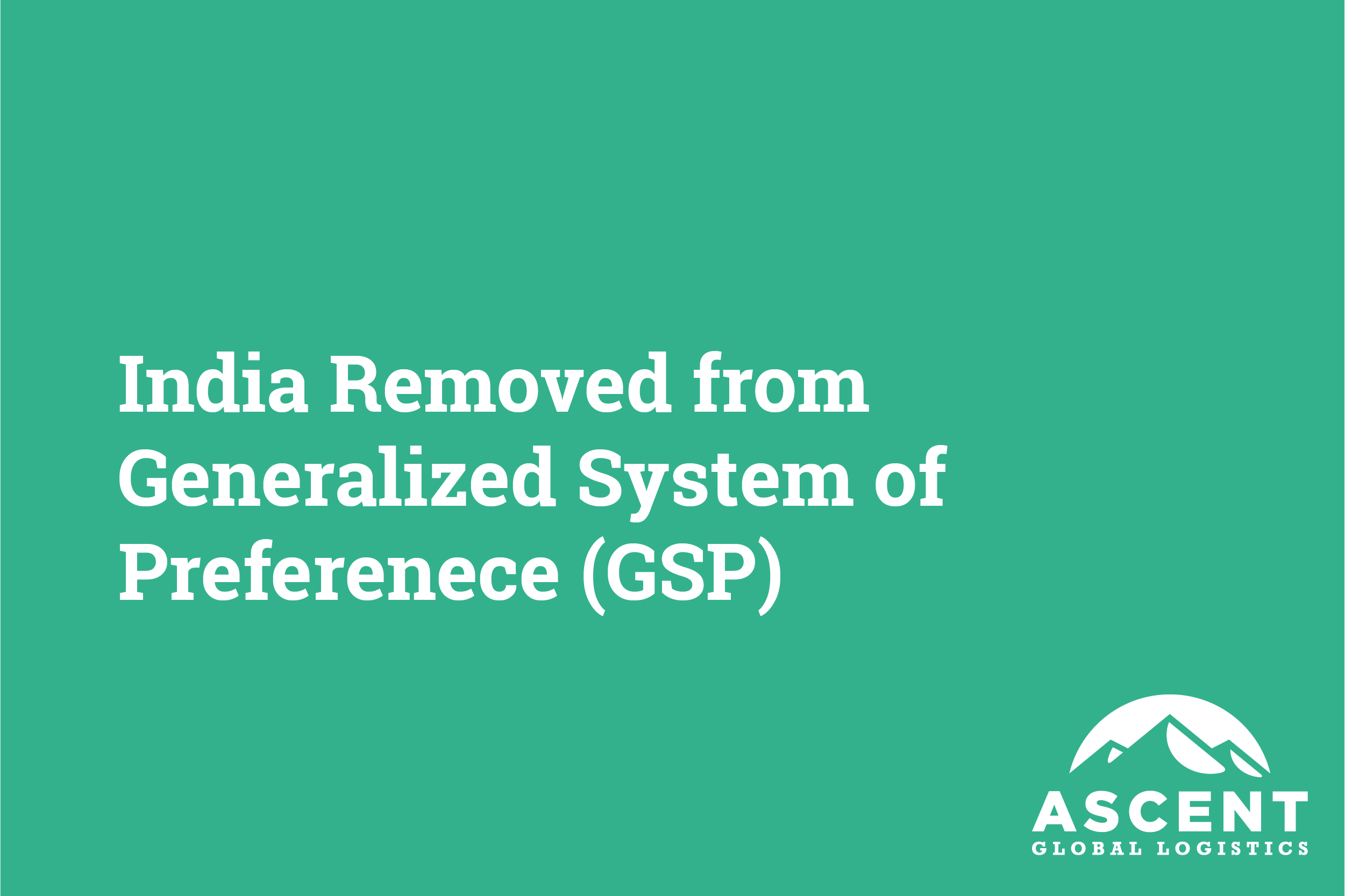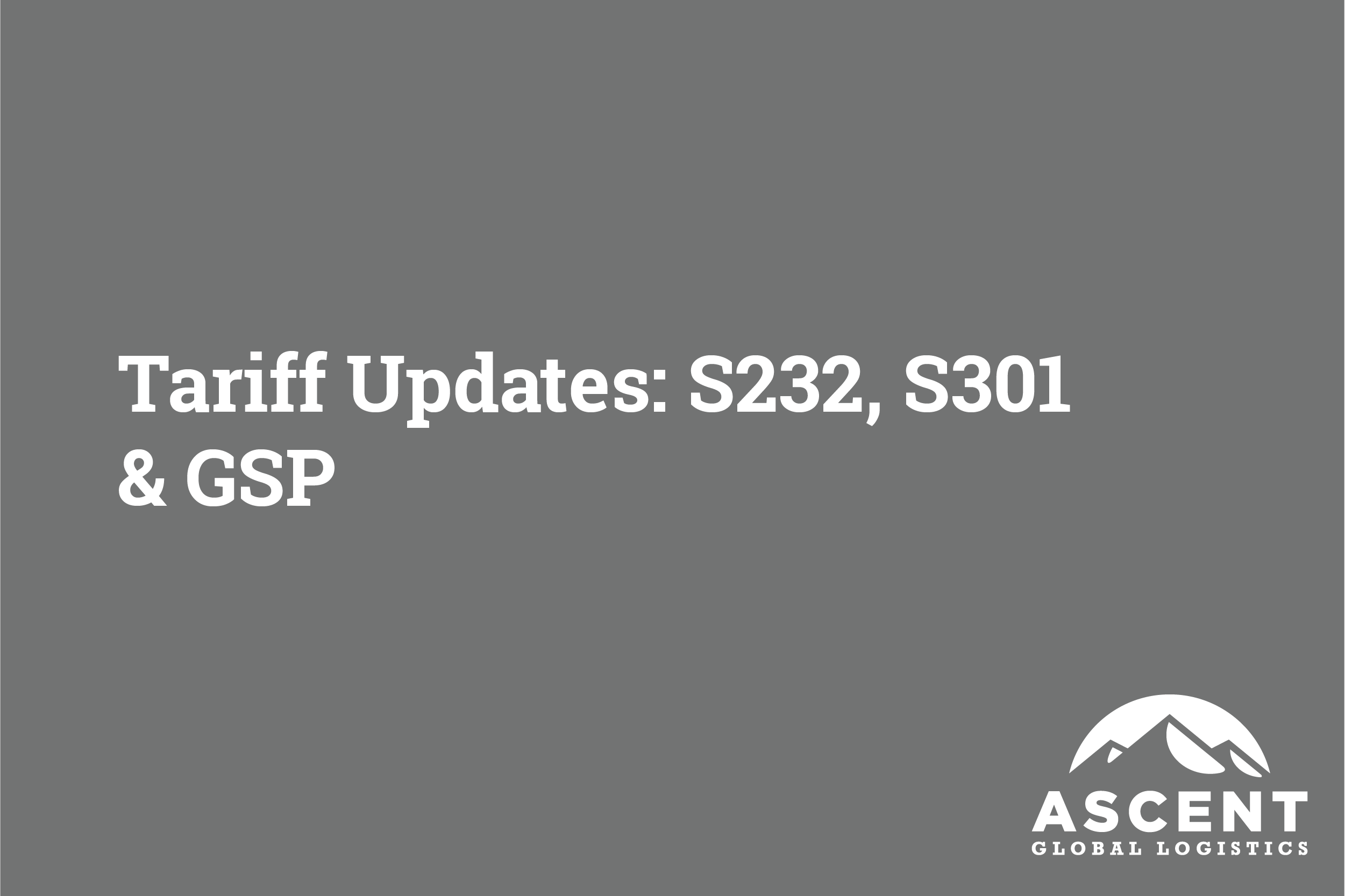CBP Promises Transparency and Commitment to National Security at 2019 Trade Symposium
Over 1,200 members of the trade community including importers, exporters, customs brokers, forwarders, carriers and various supporting businesses descended on Chicago July 22-24, 2019 to hear from the top leadership of the U.S. Customs and Border Protection (CBP) service. Speakers included Mark Morgan (Acting Commissioner of CBP), Kevin McAleenan (Acting Secretary of DHS) and Brenda Smith (EAC from the Office of Trade). Also in attendance were speakers from CBP, FDA, DOC and USTR.
Read More
Topics:
Compliance,
International
Duty drawback is a Customs and Border Protection (CBP) program where companies are refunded up to 99% of customs duties, taxes and/or fees that were previously levied upon imported merchandise, and of internal revenue taxes paid on domestic alcohol as well as other excise taxes. Duty drawback, however, is one of the most complicated commercial programs managed by CBP. Thus, it is important to have a clear understanding of all facets of how the program works and develop a relationship with a reputable drawback broker, who can help you navigate the rules and international laws.
The team at Ascent Global Logistics is ready to help you work through these complexities by determining if your situation qualifies for the Drawback Program.
Read More
Topics:
Export,
Import,
Tariffs,
Trade,
International
PierPASS Rate Increase
PierPASS was established as a not-for-profit company in Los Angeles/Long Beach in 2005 with a goal of addressing multi-terminal congestion issues. The terminals began to have peak hours and non-peak hours, which helped the flow of trucks coming into the ports to pick up containers. The Traffic Mitigation Fee (TMF) was assessed on each truck that came in during “peak” hours, encouraging more movement at off-peak hours, evening hours. The strategy was to improve energy efficiency, air quality, safety and security as well as congestion in the ports.
Read More
Topics:
Tariffs,
Trade,
International
Q2 2019 brought many updates to tariffs, regulations and more in the international trade industry. We've compiled a recap of all of the must-know trade updates for importers and exporters as we embark on Q3.
Read More
Topics:
Tariffs,
Trade,
International
Customs Trade Partnership Against Terrorism (CTPAT)
Customs and Border Protection (CBP) recently held their annual CTPAT Conference in San Antonio, TX, with an attendance of over 1,500 CTPAT members – from importers and exporters to Canadian and Mexican foreign manufacturers, from highway carriers and sea carriers to brokers and freight forwarders. A sea of people converged upon the seventh largest city in the nation and CBP did not disappoint – providing valuable information regarding the updated Minimum Security Criteria as well as how security in our agriculture is vital to our economy.
Read More
Topics:
Compliance,
International
International Trade News: S301 List 3 Tariff Exclusion Requests
According to a notice issued by the Office of the United States Trade Representative last week, requests for S301 List 3 exclusions may be submitted between June 30, 2019 and September 30, 2019 through the USTR website, which will be available on June 30. Once a requester is registered, they may complete one or multiple exclusion requests. The notice provides a replica of the form and what information must be provided.
Read More
Topics:
Tariffs,
Trade,
International
India Removed from Generalized System of Preference (GSP)
Under Executive Order 11888 of November 24, 1975, President Gerald Ford designated India as a beneficiary developing country for the purposes of Generalized System of Preference (GSP), an action afforded by The Trade Act of 1974. The goal of this Trade Act was to promote economic growth in developing countries while also providing all presidents with the ability to withdraw, suspend or limit the duty-free treatment afforded, based on various factors including the country's assurance that it will provide "equitable and reasonable access to the markets and basic commodity resources of such country" as well as refraining from unreasonable export practices.
Read More
Topics:
Tariffs,
Trade,
International
Tips for a Lower-Stress Travel Experience This Summer
One of the busiest travel seasons has arrived, with travelers preparing to take trips that will have them transiting through airports both domestically and internationally, as well as crossing various international borders and possibly interacting with different customs officials. Both U.S. Customs and Border Protection (CBP) and the Transportation Security Administration (TSA) share tips to help make those encounters go more smoothly and quickly.
Read More
Topics:
Compliance,
International
The Ocean Shipping Reform Act of 1998, which amended the Shipping Act of 1984, went into effect on May 1, 1999. This shipping act combined non-vessel operating common carriers (NVOCC) and ocean freight forwarders under one category labeled "ocean transportation intermediary" (OTI). An intermediary is defined as "a person who acts as a link between people in order to try to bring about an agreement."
Read More
Topics:
Compliance,
International
S232 - Steel & Aluminum Tariffs (Worldwide Application)
S232 tariffs were ruled “constitutional” in March of this year by the Court of
International Trade. With this ruling, the S232 tariffs are expected to continue into the foreseeable future. Since the tariffs went into effect in March of 2018, there have been over 50,000 steel and aluminum exclusion requests made and the Bureau of Industry and Security has approved just over 25,000 through mid-March of this year. Click here to read more about S232 Tariffs on Aluminum and Steel imports.
Read More
Topics:
Tariffs,
Trade,
International


